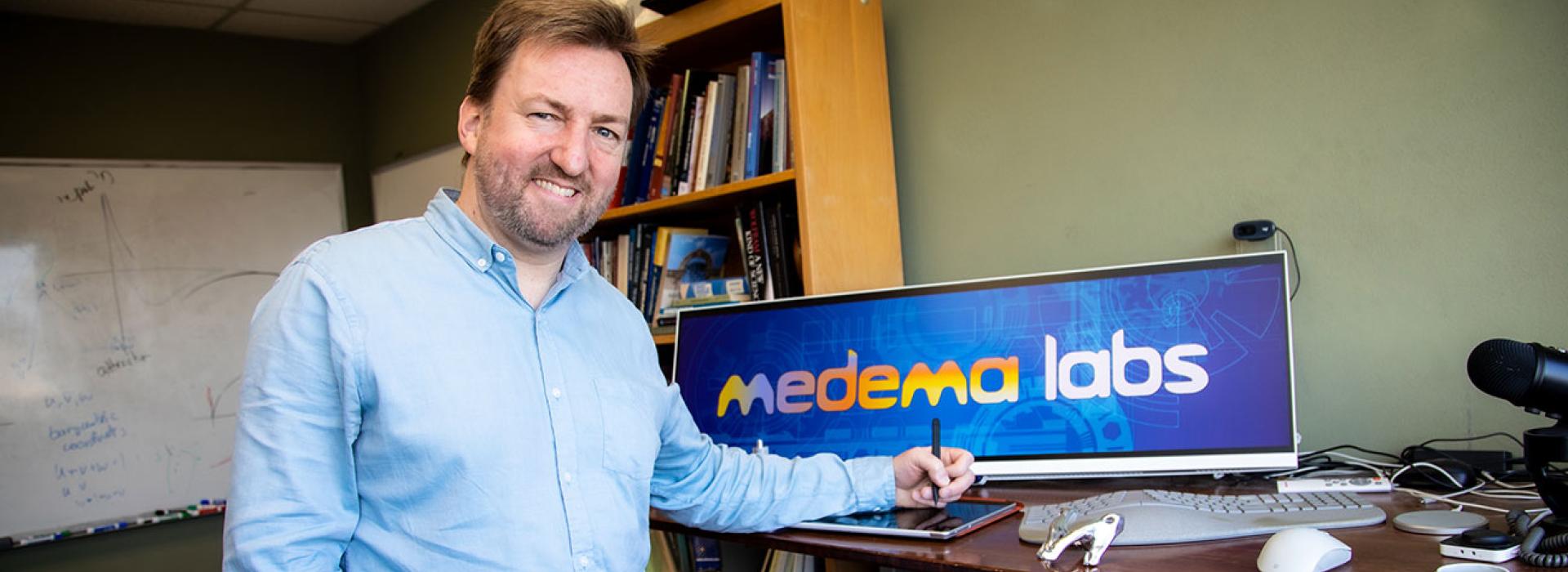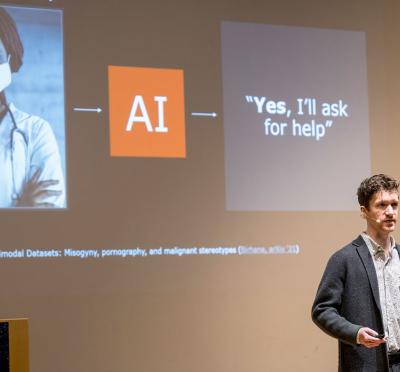Medema Labs, a startup company spun out from engineering research at Oregon State University, is developing software tools powered by machine learning to help small- and medium-size manufacturers make better business decisions.
The company was recently awarded $1.3 million in Phase 2 funding from the Office of the Secretary of Defense through the federal Small Business Innovation Research program, for its proposal to develop an “artificial intelligence consultant” for contract manufacturers. The software will automate job quoting and help manufacturers identify new equipment purchases.
“Quoting jobs can be one of the most time-consuming parts of the manufacturing process,” said Matt Campbell, professor of mechanical engineering and CEO of Medema Labs. “It can take days or even weeks. With our tools, a user can upload a CAD drawing of a part, enter a few details, and get back a quote almost instantly.”
Using artificial intelligence trained on user-supplied data from completed jobs, the Medema PartAnalyzer will be able to quote jobs with an accuracy rivaling that of its most skilled human counterparts, Campbell says. In addition to enabling manufacturers to turn around quotes more quickly, the software will effectively free up engineering staff to do other work.
“At some shops, there are engineers who have become specialists in quoting jobs, to the point where that’s all they do,” he said. “Not every shop has that option. There’s also the consideration that it’s going to be very difficult, when those people retire eventually, to replace all of their knowledge and experience.”
The Medema PartAnalyzer breaks down a job into steps, estimating costs and runtime for each iteration of every process. For example, a user can upload a CAD drawing of a bracket to be machined out of a solid block of aluminum. The tool would then calculate, to a fraction of a cent, how much each step — every pass on the CNC milling machine, every hole drilled, and every instance where a cutting tool needs to be switched out — contributes to the final cost of each part produced.
Such information would be of obvious use to design engineers on the front end, breaking down the cost of every little decision and identifying opportunities to shave a few pennies here or there from each part. A few tweaks in design could add up to significant savings over large production runs.
But the Medema software can also help with some really big, long-term decisions about equipment purchases, Campbell says. By enabling manufacturers to compare their actual costs against the savings they could achieve using advanced manufacturing technologies — such as more advanced CNC mills, robotic machine tenders, and additive manufacturing — the software can provide crucial insight into whether an upgrade makes good business sense, even calculating a timeline of return on their investment.
“It’s been hard to ramp up high-tech manufacturing in this country,” Campbell said. “A big part of the problem is that equipment costs present a huge barrier to entry for mom-and-pop manufacturers. When you’re looking at a purchase in the millions or tens of millions of dollars, you want to be sure it’s going to pay off.”
Campbell co-founded Medema Labs in 2019 with former doctoral student Brandon Massoni, now the company’s chief technical officer, after going through the university’s Advantage Accelerator program. The idea for the company grew out of research the two had performed for a project with Boeing from 2015 to 2019. The company was awarded SBIR Phase 1 funding in 2020. During Phase 2, which runs for 24 months, the company will take its software through beta deployment and work out plans for its commercialization and future development.
Campbell says he would like to eventually make a version of the Medema PartAnalyzer available free of charge to manufacturers through a web-based interface.



